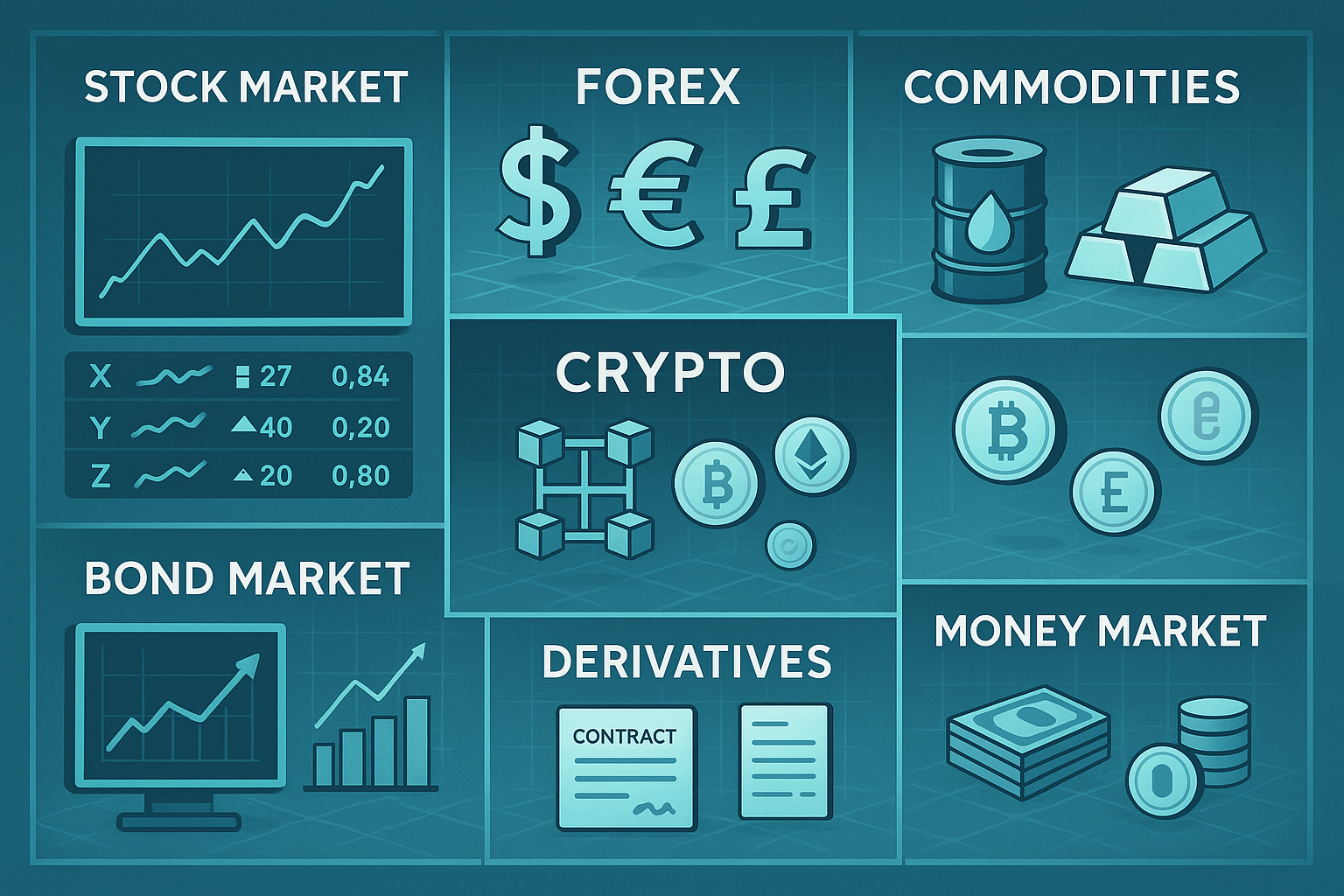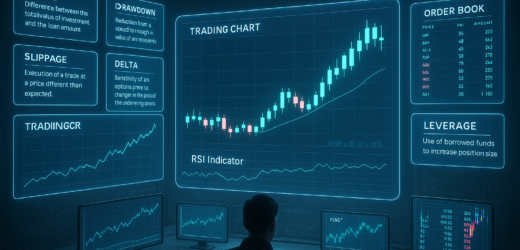Financial markets are diverse platforms that facilitate the exchange of various financial instruments, playing a crucial role in the global economy. Here’s an overview of the primary types of trading markets, along with examples for each:
1. Stock Market: The stock market enables investors to buy and sell shares of publicly traded companies, providing a platform for businesses to raise capital and for investors to own a portion of these companies.
Examples:
- New York Stock Exchange (NYSE): One of the largest stock exchanges globally, hosting companies like Apple Inc. and Walmart.
- London Stock Exchange (LSE): A major European exchange where companies such as BP and HSBC Holdings are listed.
2. Bond Market: Also known as the debt market, it involves the issuance and trading of debt securities, allowing entities to raise funds by borrowing from investors.
Examples:
- U.S. Treasury Bonds: Long-term debt instruments issued by the U.S. government to finance its operations.
- Corporate Bonds: Debt securities issued by companies like The Coca-Cola Company to fund expansion projects.
3. Commodities Market: This market deals with the trading of raw materials and primary products, which are categorized into hard and soft commodities.
Examples:
- Hard Commodities: Gold traded on the London Metal Exchange; Crude Oil traded on the New York Mercantile Exchange (NYMEX).
- Soft Commodities: Coffee and sugar traded on the Intercontinental Exchange (ICE).
4. Foreign Exchange (Forex) Market: A decentralized global market for the trading of currencies, essential for international trade and investment.
Examples:
- EUR/USD Pair: Trading the euro against the U.S. dollar.
- USD/JPY Pair: Trading the U.S. dollar against the Japanese yen.
5. Money Market: Focuses on short-term borrowing and lending, dealing in instruments that mature in one year or less, providing liquidity for financial systems.
Examples:
- Treasury Bills (T-Bills): Short-term securities issued by governments.
- Commercial Paper: Unsecured short-term debt issued by corporations to meet immediate funding needs.
6. Derivatives Market: Involves financial contracts whose value is derived from underlying assets like stocks, bonds, commodities, or currencies, used for hedging or speculative purposes.
Examples:
- Futures Contracts: Agreements to buy or sell an asset at a predetermined price at a specified time in the future, such as oil futures on the Chicago Mercantile Exchange (CME).
- Options Contracts: Contracts that give the holder the right, but not the obligation, to buy or sell an asset at a set price before a certain date, like stock options on the NASDAQ.
7. Cryptocurrency Market: A relatively new market where digital assets like cryptocurrencies are traded on various platforms.
Examples:
- Bitcoin (BTC): The first and most widely recognized cryptocurrency, traded on exchanges like Coinbase.
- Ethereum (ETH): A leading cryptocurrency known for its smart contract functionality, available on platforms such as Binance.
Each of these markets serves distinct functions and offers various opportunities for participants, contributing to the overall efficiency and stability of the financial system.





